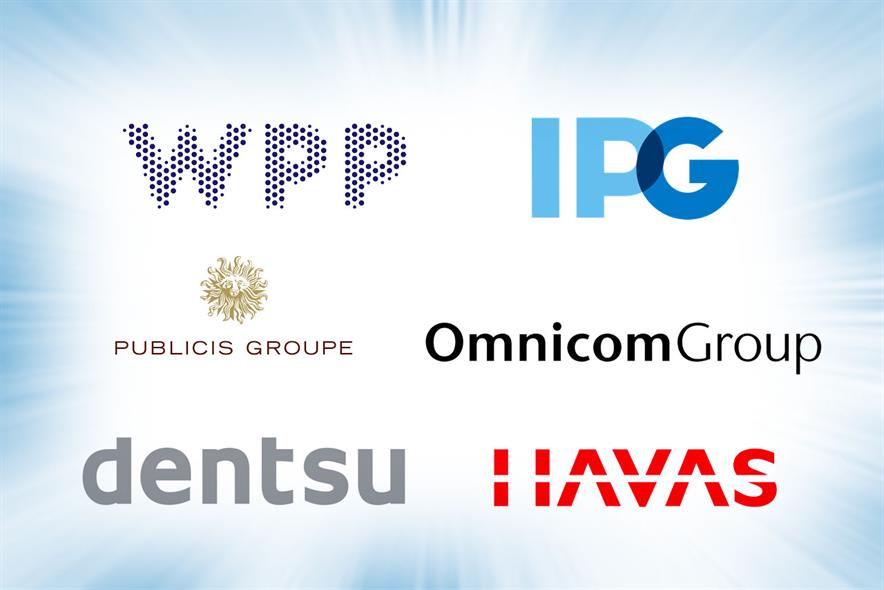The big six global agency groups added 32,000 jobs in 2021, more than making up for the 24,000 lost roles in 2020 and taking their total headcount to 408,000, according to an analysis by Campaign.
The 8.5% increase in staff numbers underlines the speed of the advertising recovery and the resilience of the agency sector after a 6% decline from 400,660 in 2019 to 376,516 in 2020 (see graphic below).
Most of the “big six” groups—WPP, Publicis Groupe, Omnicom, Interpublic, Dentsu and Havas—had expected it would take two years or longer for revenue to return to pre-pandemic levels.
WPP, the world’s biggest group by staff numbers, was the biggest recruiter. The UK-listed group added 9,552 roles in 2021 and employed 109,382 at the year-end, after cutting 6,956 in 2020.
Publicis Groupe, the second largest by headcount, expanded by 7,950 employees to reach around 87,000, according to the company, which has not published its annual report with an exact figure yet. The French group cut 4,184 roles in 2020.
US-based Omnicom increased its global headcount by 7,600 to 71,700 after losing 5,900 roles in 2020.
Interpublic, which is also US-listed, added 5,400 roles to take its total workforce to 55,600, following a reduction of 4,100 a year earlier.
Japanese-owned Dentsu said it ended 2021 with around 65,000 employees, although it did not disclose an exact number. Previously the group employed 64,533 at the end of 2020 after cutting 1,867 roles. That suggests it added about 467 jobs in 2021.
Havas, a subsidiary of Vivendi, added 1,037 people to take its global headcount to 19,839 in 2021, after losing 1,137 roles a year earlier.

The increases in staff numbers do not fully reflect some of the levels of employee churn in 2021 as the jobs market sprang back to life across much of the economy—a trend dubbed “The Great Resignation”. Dentsu said 17,000 new employees, or more than a quarter of its workforce, joined last year.
Ian Whittaker, a long-time advertising analyst and the founder and managing director of Liberty Sky Advisors, who writes Campaign’s Investor View column, said: “The agency groups bounced back much stronger from the pandemic than the consensus expected. Issues remain in areas such as pricing but the pandemic might turn out to have been a blessing in disguise in that it proved the worth of the agencies to clients.
“There are short-term pressures in recruitment and compensation but a longer-term question for the groups is whether they need to redesign the ‘sack-start’ policy of firing people in a cyclical fall only to rehire them expensively later. That may avoid many staffing problems.”
Agency leaders have previously defended their decision to cut so many jobs—particularly during Q2 2020 when the ad market collapsed—and then to hire again a year later.
Mark Read, the chief executive of WPP, told Campaign at its 2021 annual results in February that the company “took a lot of steps to limit the number of people that we did cut” by asking staff to make voluntary salary sacrifices and not cutting jobs in line with the scale of the revenue decline.
Some of the jobs growth in 2021 has been in “new areas” that are different from the areas where there were redundancies, Read added.
Similarly, Philippe Krakowsky, the chief executive of Interpublic, insisted to Campaign last year that it had tried to protect jobs in a “strategic” way during the coronavirus downturn.
IPG and the wider sector is “in the process of evolving” and the roles that were lost were not replaced in a “like for like” way when IPG began hiring again, Krakowsky said, explaining there had been “a shift in the skillsets and in the talent” that clients needed.
The big agency groups reported organic revenue growth of 10% or higher at their 2021 results and predicted further increases of between 4% and 6% in 2022—but that was before the Russian invasion of Ukraine, which has hit global investor sentiment.

